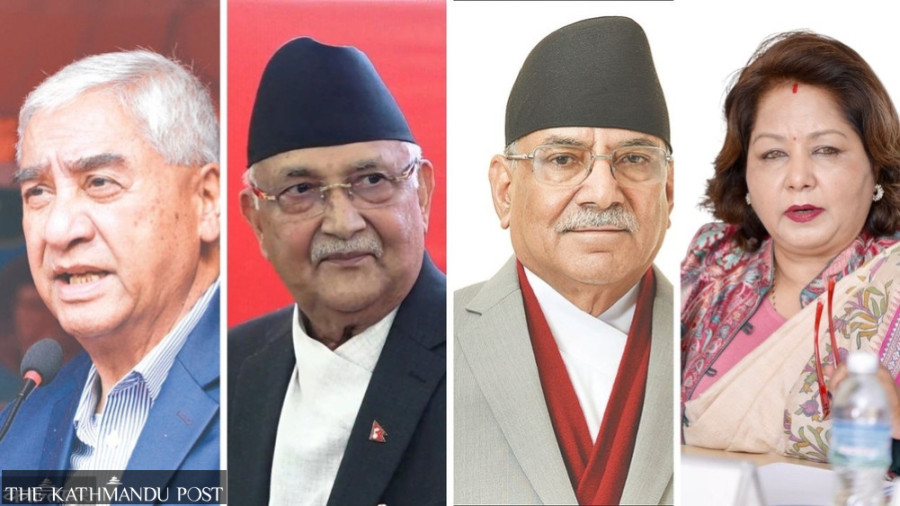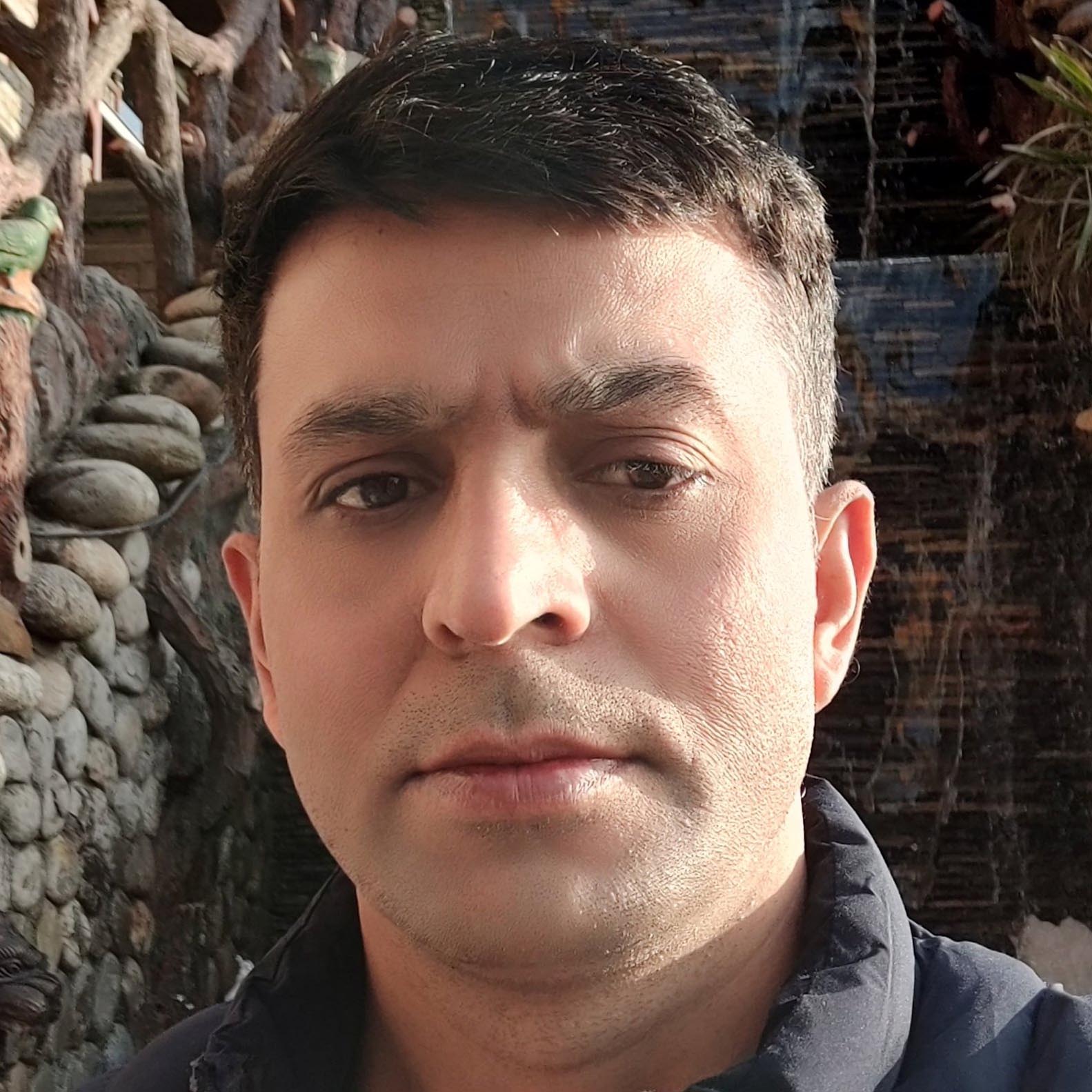National
Investigation into assets of three former prime ministers and two former ministers begins
Authorities probe suspected illicit wealth of top political leaders following public outrage.
Matrika Dahal
The Department of Money Laundering Investigation has launched a probe into the assets of three former prime ministers and two former ministers. The investigation targets former prime ministers Sher Bahadur Deuba, KP Sharma Oli, and Pushpa Kamal Dahal, as well as former ministers Arzu Rana Deuba and Deepak Khadka, over suspected accumulation of illegal wealth through abuse of public office. Deuba’s son, Jaybir Sing Deuba, is also under the radar.
The department has written to Nepal Rastra Bank, the Securities Board of Nepal, and the Office of the Company Registrar to collect and submit details of savings, investments, companies, and business transactions linked to the five leaders and their relatives. For details on their land and property, the Department of Land Management and Archives received a formal request on Thursday. Officials confirmed that relevant agencies are in the process of gathering the requested information.
Following the department’s correspondence, land revenue offices across all 77 districts were instructed to provide property details. Banks and financial institutions were asked to submit account details, cash balance, jewellery, and transaction records to the central bank.
Police were also asked to provide forensic reports on burnt currency notes and ashes recovered from the residences of former prime ministers Deuba and Dahal, and former minister Khadka, after protesters set their houses on fire on September 9. That day, demonstrators targeted the homes of Congress President Deuba, UML chair Oli, and Maoist Centre chief Dahal, among others.
The department sent a team to Deuba and Khadka’s residences on September 21, and to Dahal’s Khumaltar home on September 23. Investigators collected fragments of burnt notes, ashes, and other evidence, sending samples to the Central Investigation Bureau (CIB), which has yet to submit its report.
The asset investigation examines wealth, companies, and transactions across three generations. Once information from various agencies is compiled, the department will enter a second phase, taking statements from those under scrutiny, officials said.
“In asset investigations, the main focus is on business transactions through companies and banks, property holdings, shares, and lifestyle. Once these are tracked, we can identify how the individuals’ relatives benefit from them,” a department official said. “This process requires systematic collection of information from various agencies.”
This marks the first time the department has moved to investigate long-standing political figures like Deuba, Oli, and Dahal. Despite multiple controversies over public procurement, appointments, transfers, promotions, and misappropriation of national assets, these leaders never faced formal probes earlier.
The investigation was initiated by the interim government formed after the Gen Z uprising toppled the KP Sharma Oli-led government on September 9.
The Oli-led government kept the department, then under the Office of the Prime Minister and Council of Ministers, in 2017. The department was moved back to the finance ministry by the interim government.
Leaders face corruption and misuse of public resources allegations
Former prime minister Deuba has held public office since 1991, winning every parliamentary election from Dadeldhura. He served as home minister in 1991 and has been prime minister five times. His wife, Arzu Rana Deuba, has been a lawmaker three times through the Congress’s proportional representation system and served as foreign minister in the KP Sharma Oli-led government, which was toppled by Gen Z protests earlier this month.
Arzu Rana Deuba has been accused of corruption, including benefiting from public contracts; and transfers, promotions, and appointments in government agencies and other positions.
Her name has also been linked to the fake Bhutanese refugee scam and irregularities in land deals in Tikapur. However, she has not been formally investigated in any of these cases.
Likewise, Maoist chief Dahal entered parliamentary politics after the 2006 political revolution and has led the government three times. His Maoist party has been in and out of government nearly a dozen times since.
During the Maoist insurgency, banks and financial institutions were looted, and gold and silver seized, with former party members later accusing the leadership of misappropriating billions of rupees collected during the time. After the peace process began in 2006, the party leadership was accused of embezzling billions of rupees distributed from the state coffers as government allowances meant for Maoist combatants. The Office of the Auditor General flagged the irregularities, which were later refused amid what critics described as political interference.
Dahal has also faced scrutiny for staying at the residence of controversial contractor Sharada Prasad Adhikari, which was set ablaze on September 9.
Oli, consistently a central figure in Nepali politics, served as home minister in the Manmohan Adhikari-led government in 1994 and as deputy prime minister and foreign minister under Girija Prasad Koirala after the second people’s movement.
Oli held the prime minister’s office in 2015–16, 2018–21, briefly in 2021, and again from July 2024 until his exit on September 9. He is accused of supporting the scam to misappropriate the land of Giribandhu Tea Estate in Jhapa, which had been given exemption limits for running industries during the Panchayat era, by amending the law and securing approval from the Council of Ministers.
Similarly, as the energy, water resources, and irrigation minister in the Oli-led government, Deepak Khadka faced allegations of irregularities in awarding hydropower licences and contracts. He was also accused of facilitating financial transactions and misusing land belonging to Nepal Scouts in Lainchaur. No effective investigations followed.




 12.62°C Kathmandu
12.62°C Kathmandu














